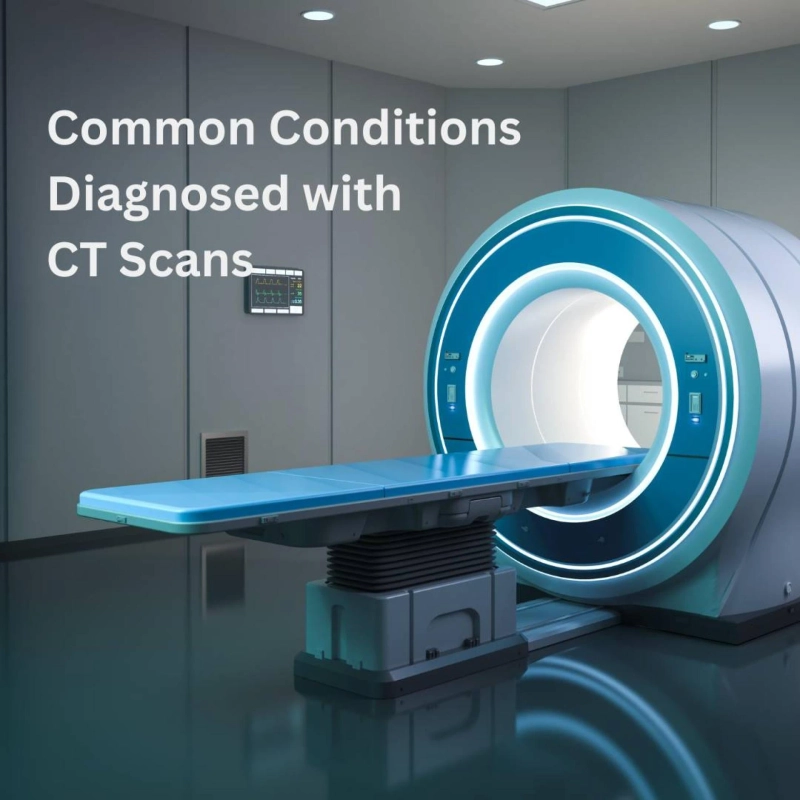In the world of medical diagnostics, Computed Tomography (CT) scans have revolutionized the way healthcare professionals investigate and identify various health conditions. This advanced imaging technology employs X-rays to create detailed cross-sectional images of the body, providing valuable insights into internal structures. CT scans are instrumental in diagnosing a wide array of medical conditions, enabling timely and accurate treatment. In this article, we will explore some common conditions that can be diagnosed through CT scans.
Traumatic Injuries:CT scans are highly effective in assessing traumatic injuries such as fractures, dislocations, and internal organ damage. Whether it's a motor vehicle accident, sports-related injury, or a fall, CT scans offer detailed images that help healthcare providers visualize and evaluate the extent of the injury. This enables prompt and targeted intervention to optimize patient outcomes.
Cancer Detection:CT scans play a crucial role in the detection and staging of various cancers. The high-resolution images provided by CT scans aid in identifying tumors, determining their size and location, and assessing their involvement with surrounding tissues. Additionally, CT scans are valuable for monitoring cancer treatment responses and detecting potential recurrence.
Neurological Conditions:CT scans are commonly used to diagnose neurological conditions such as strokes, brain tumors, and hemorrhages. In cases of suspected stroke, CT imaging can quickly identify areas of reduced blood flow or bleeding in the brain, guiding medical professionals in determining appropriate interventions. For brain tumors, CT scans assist in visualizing the size and location of the mass, aiding in treatment planning.
Pulmonary Disorders:Conditions affecting the lungs, such as pneumonia, pulmonary embolism, and lung cancer, can be diagnosed and evaluated using CT scans. These scans provide detailed images of the lung tissue, allowing healthcare providers to identify abnormalities, assess the extent of lung involvement, and plan suitable treatment strategies.
Abdominal and Pelvic Conditions:CT scans are instrumental in diagnosing a variety of abdominal and pelvic conditions, including appendicitis, kidney stones, and inflammatory bowel disease. The detailed imaging helps identify the source of pain or discomfort, enabling healthcare professionals to make informed decisions regarding appropriate medical or surgical interventions.
Cardiovascular Issues:CT angiography is a specialized form of CT scanning that focuses on the blood vessels. It is commonly used to diagnose cardiovascular conditions such as aortic aneurysms, arterial blockages, and congenital heart abnormalities. CT angiography provides detailed images of blood vessels, aiding in the assessment of blood flow and the detection of abnormalities.
CT scans have become an indispensable tool in modern medicine, allowing healthcare professionals to peer inside the human body with unprecedented clarity. From traumatic injuries to complex internal conditions, the diagnostic capabilities of CT scans have significantly improved patient care by enabling accurate and timely diagnoses. As technology continues to advance, the role of CT scans in healthcare is likely to expand, contributing to further breakthroughs in medical diagnosis and treatment.


